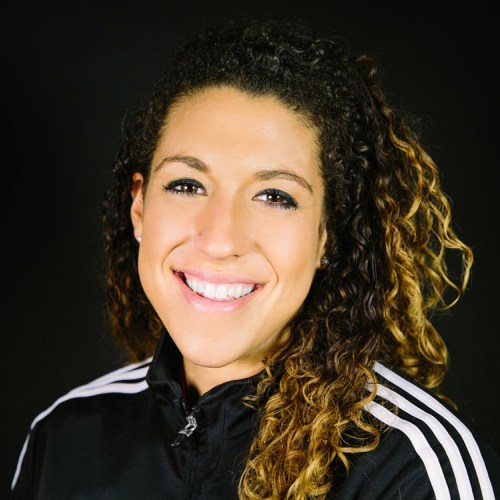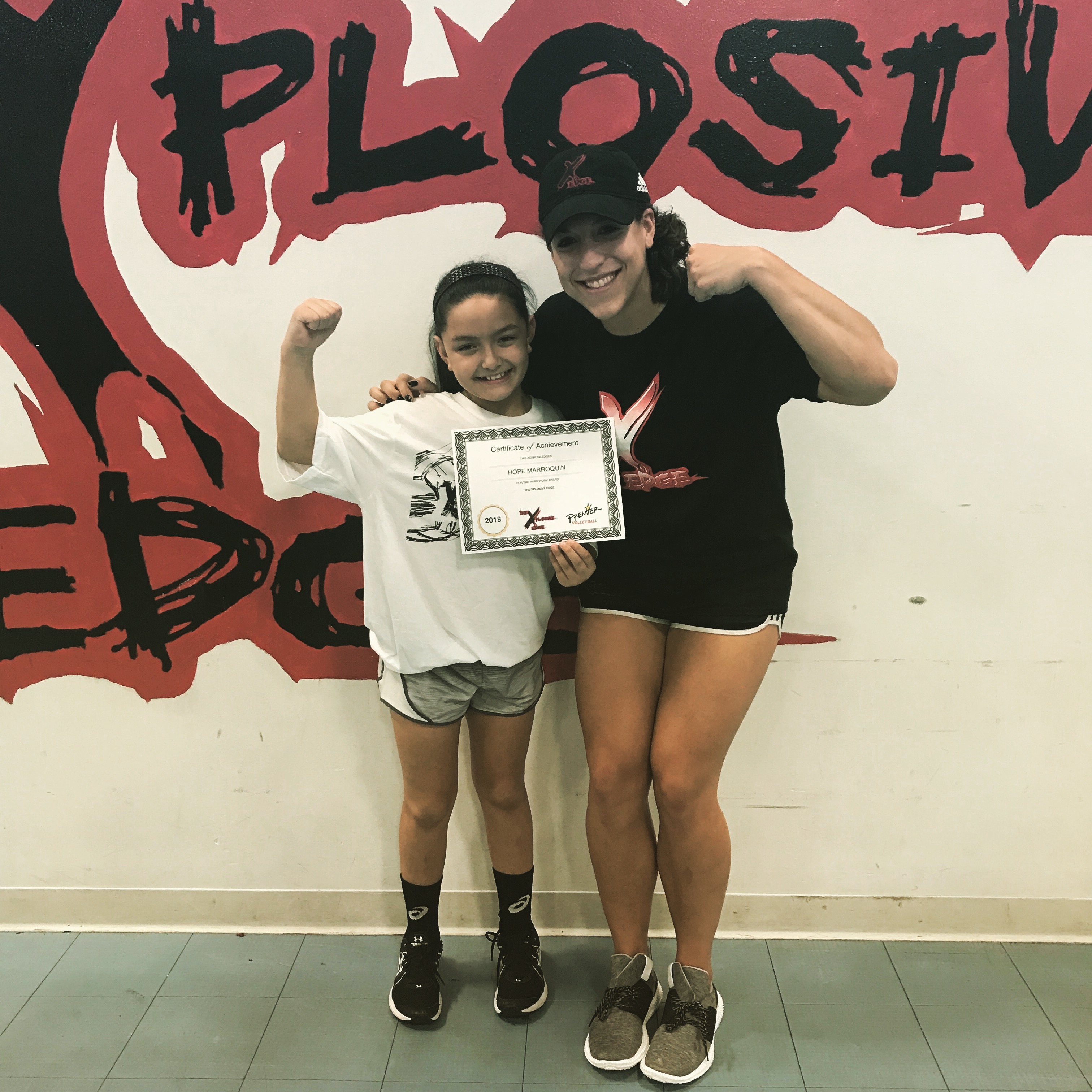Diane Homan on Volleyball, Confidence, and Coaching Full Circle
by NSCA
Other
October 2025
From the only girl in her school’s weight training class to Director of Sports Performance at The Xplosive Edge, Homan now shapes athletes at every level.
Finding Confidence in Strength
Diane Homan, MS, CSCS, RSCC, PRT, will be the first to admit she wasn’t the most naturally athletic. She overthought every move, and when she tried out for club volleyball, she was cut.
Her dad, a former Nebraska football player, and her mom, a track athlete, modeled dedication and encouraged her athletic dreams. Her dad also knew the importance of strength and conditioning — he connected her with a trainer who built her foundation and gave her something bigger: belief.
“He told me, ‘You can go in and lift with the guys — don’t be afraid, don’t be shy,’” Homan recalls. “That was huge for me as a female athlete. Having a trainer invest in me, even though I wasn’t the stud athlete, changed everything.”
By high school, she was the only girl in her advanced weight training class. Instead of backing away, she owned it. That confidence carried her into a Division I volleyball career at the University of Nebraska Omaha, and later internships with Husker Power and Cressey Sports Performance.
Coaching 200 Athletes with the Same Standard
Now Director of Sports Performance at The Xplosive Edge, Homan has over a decade of expertise and holds the Registered Strength and Conditioning Coach® (RSCC) — an advanced NSCA designation that verifies professional experience and requires annual training to maintain.


She works with more than 200 volleyball athletes each season, including Premier Volleyball, one of the nation’s top youth clubs. Homan began with youth athletes — her lifelong passion — but also coaches professional and general population clients, reflecting her commitment across ages and ability levels.
“I know what it feels like to not be the most naturally talented,” she explains. “That’s why I make sure every athlete gets the same coaching — whether they’re a pro or a 13-year-old just figuring it out.”
Training, Homan says, starts with connection. Even in a group of 30, she makes it a point to have at least one meaningful interaction with each athlete. “Athletes won’t push if they don’t trust you.”
Shaping Confidence On and Off the Court
Homan once struggled with underfueling and overtraining. Today, she flips that script for her athletes — even creating a social media page on female athlete nutrition to share confidence-building messages alongside her coaching.
“It’s not about how you look, it’s about how you perform,” she stresses. “Did you hit harder? Did you jump higher? That’s what matters.” Homan emphasizes how caring for both physical and mental well-being leads to greater long-term results and confidence, helping reshape the narrative around exercise and eating with youth populations. “When female athletes get excited that they’ve gained weight that’s muscle and are proud of it, that’s a win!”
She’s also part of the NSCA Women’s Mentorship Program — a successful initiative launched in 2023 that now unites hundreds of women across the profession. As Homan puts it: “If I can help somebody with my story or inspire somebody, why not throw it out there?”
Recently, her role has expanded to working with professional athletes through LOVB Nebraska, the state’s professional volleyball team. For Homan, it’s a full-circle moment — from learning to believe in herself to shaping athletes at every level.
From the Field: Diane’s Perspective
Q: What’s the most important message when coaching female athletes?
A: “Reframe the language. Don’t make it about looks or the scale. Celebrate performance — the five-pound PR, the stronger hit, the higher jump. Those wins change how athletes see themselves.”
Q: How do you make training enjoyable and effective, critical in the private sector?
A: “Connection. Athletes choose to be here — so I make a point to build trust, even if it’s just eye contact or a quick word during a workout. If they trust you, they’ll keep showing up and working hard.”
Q: What’s your biggest volleyball insight after all these years of playing and coaching?
A: “Foundations first. We still base our training around the 10 Husker Power principles — strength, explosiveness, three-dimensional movement, among others. Sport coaches handle the technical side; my job is to give them better athletes to coach.
You just read an article from the NSCA’s new Member Spotlight series, featuring professionals shaping strength and conditioning. Want to share your story? Email marketing@nsca.com.
- Privacy Policy
- Your Privacy Choices
- Terms of Use
- Retraction and Correction Policy
- © 2026 National Strength and Conditioning Association